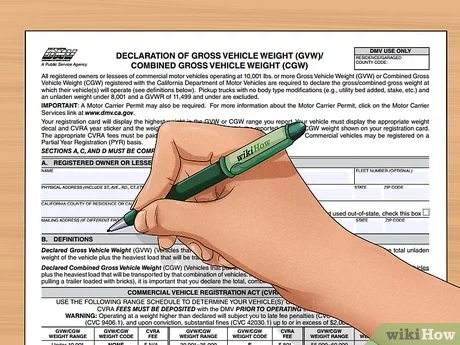Should I Buy Extended Warranty on Used Car
Deciding to buy an extended warranty on a used car depends on personal risk tolerance and the vehicle’s reliability. Consider the cost, coverage, and your budget before making a decision.
Purchasing a used car often involves weighing the potential savings against the risk of future repairs. An extended warranty can offer peace of mind by covering unexpected repair costs after the original manufacturer’s warranty expires. Yet, it’s crucial to evaluate if the benefits justify the extra expense.
Extended warranties can be a wise investment for cars known to have costly issues as they age, or for buyers who aren’t prepared to handle sudden, substantial repair bills. With various warranty options available, it’s essential to scrutinize the terms for what’s included and the reputation of the warranty provider. Careful consideration ensures that the extended warranty aligns with your financial plans and the specific needs of your used car.

Credit: www.youtube.com
Benefits Of An Extended Warranty For Used Cars
Purchasing an extended warranty for a used car can be a smart investment. It goes beyond the basic coverage, offering more security for your auto needs. Here are the perks of opting for this extra protection.
Peace of Mind Against Unexpected Repairs
Peace Of Mind Against Unexpected Repairs
Used cars come with history, and that history is not always known. An extended warranty takes the guesswork out of the equation. It offers a buffer against costly surprises. Here’s what you get:
- Comprehensive coverage: It covers parts that can fail after purchase.
- Fixed repair costs: You will know upfront what you need to pay.
- 24/7 roadside assistance: Help is always at hand with this service feature.
Potential Savings Over Time
Potential Savings Over Time
As your car ages, the likelihood of repairs increases. An extended warranty can mean big savings. Here’s how:
- It covers expensive and unforeseen repairs.
- You avoid the rising costs of parts and labor.
- Resale value may improve with transferable warranties.
Cut costs and maintain your car without the stress.
Assessing The Need For Extended Warranty
Navigating the crossroads of purchasing an extended warranty for a used car can seem daunting. Smart decision-making requires understanding whether such a warranty is a financially sound choice tailored to your situation. This section helps evaluate the necessity of an extended warranty for your vehicle.
Analyzing Vehicle Reliability
Vehicle reliability often dictates the likelihood of costly repairs. Begin by researching the make and model of your car. Look for:
- Historical performance data which predicts potential issues.
- User reviews and ratings from established automotive platforms.
- Reports from consumer advocacy groups that test vehicle longevity.
Owner forums can offer insights into common problems faced by your vehicle. A reliability scorecard, from trusted mechanics or consumer reports, simplifies this evaluation.
Understanding Warranty Coverage Limits
Coverage limits determine the effectiveness of a warranty. Scrutinize the following aspects:
| Aspect | Details to Consider |
|---|---|
| Mileage | Is there a cap on the number of miles? |
| Duration | How long is the coverage period? |
| Exclusions | What components are not covered? |
| Deductibles | Are there upfront costs for service? |
| Transferability | Can the warranty transfer to a new owner? |
A deep dive into the fine print can prevent future surprises. Knowledge of these limits ensures alignment with your expectations and needs.
Financial Implications
Considering an extended warranty on a used car? Let’s explore the financial side. This warranty might shield you from surprise costs down the road. Yet, it’s crucial to weigh immediate expenses against future savings. And remember, an extended warranty might boost your car’s resale value.
Upfront Costs Vs Long-term Benefits
Before you decide, think about upfront costs versus potential long-term benefits. Here’s the deal:
- Initial Payment: This is the fee you pay when you get the warranty.
- Repair Savings: Money saved on possible future repairs.
Is the initial payment smaller than repair savings? If yes, the warranty might be a smart move. If no, think twice.
Resale Value Considerations
An extended warranty can affect resale value. People like buying cars with protection. Your car might sell faster and for more money. Some key points:
| Without Warranty | With Warranty |
|---|---|
| Lower selling price. | Higher selling price. |
| Tougher to sell. | Easier to sell. |
Considering warranty for resale? Check its transferability. Not all warranties pass to new owners.

Credit: www.marketwatch.com
Alternatives To Extended Warranty
Thinking about an extended warranty for a used car? Consider this. There are alternatives that can save money and provide peace of mind without the high cost. Let’s explore options that can protect your wallet and your wheels.
Saving For Repairs Independently
One practical alternative is setting aside a repair fund. Use these tips:
- Start a dedicated savings account for car repairs.
- Set realistic monthly saving goals based on average repair costs.
- Regularly review and adjust your savings plan.
These steps mean you’ll have cash on hand for repairs without an extended warranty’s cost.
Third-party Insurance Options
Another route is third-party insurance plans. Consider these factors:
- Research reputable providers with good customer feedback.
- Compare plans for coverage and deductibles.
- Read the fine print to understand what’s included.
Look for plans offering flexibility and value, not just low upfront costs.
Questions To Ask Before Purchasing
Buying an extended warranty for a used car can be tricky. You need the right information to make a smart decision. Here are key questions to ask before you sign that contract:
Inclusions And Exclusions Of The Policy
Know exactly what the warranty covers and what it doesn’t. Here’s what to ask:
- What parts of the car are covered?
- Are there parts that the warranty doesn’t cover?
- Does it include roadside assistance or rental car benefits?
- Are there specific exclusions you should be aware of?
Deductibles And Claim Process
Understand the costs and steps to use the warranty.
| Deductible Amount | Claim Procedure |
|---|---|
| How much will you pay out-of-pocket for repairs? | What steps must you follow to make a claim? |
| Is the deductible per visit or per repair? | How long does it take to process claims? |
Check the fine print. Ask about the claim approval process prior to your purchase. Take note of waiting periods and who authorizes the repair work.
Case Studies: Extended Warranty In Action
Delving into case studies highlighting extended warranties in action can offer valuable insights. Real-world examples shed light on what may seem an abstract concept. Through these stories, one can see how an extended warranty can save the day or sometimes complicate matters.
Success Stories Of Warranty Claims
Happy drivers recount numerous success stories where extended warranties have proven their worth. Let’s look at some scenarios:
- Engine Overhaul Joy: A 2010 sedan’s engine needed an expensive overhaul. An extended warranty covered the costs.
- Transmission Fix Relief: The transmission of a 2012 SUV failed unexpectedly. A $3,000 repair bill was paid through the warranty.
- A/C System Win: In the heat of summer, a 2011 convertible’s A/C system failed. The comprehensive warranty swooped in to chill the repair costs.
Issues And Challenges Faced
Yet, not all warranty tales end on a high note. Challenges can arise affecting claims.
| Issue | Challenge | Outcome |
|---|---|---|
| Pre-Existing Condition | A 2013 hatchback’s gearbox issues were deemed pre-existing. | Warranty voided; owner paid out-of-pocket. |
| Service History Gaps | Irregular service led to a void warranty for a 2014 coupe. | No coverage provided; lessons learned about maintenance. |
| Deductible Surprises | A 2009 pickup’s owner was unaware of a high deductible clause. | A financial hit was taken; importance of reading fine print was noted. |
These tales of success and challenge serve as cautionary and hopeful stories for potential warranty buyers. Understanding your needs and warranty details can make all the difference.
Frequently Asked Questions Of Should I Buy Extended Warranty On Used Car
Is An Extended Warranty Worth It For Used Cars?
Buying an extended warranty for a used car can offer peace of mind against costly repairs. It depends on the car’s reliability history, age, your budget, and aversion to risk. Weigh the potential repair costs against the warranty price for an informed decision.
What Does An Extended Warranty Cover On A Used Car?
Extended warranties vary but generally cover major breakdowns and specific car parts. They exclude routine maintenance, wear and tear items, and cosmetic damage. Always read the terms and conditions to understand the exact coverage before purchasing.
How Much Should I Pay For A Used Car Warranty?
The cost of an extended warranty for a used car varies by provider, vehicle type, and coverage level. Prices can range from a few hundred to over a thousand dollars. Shop around, negotiate terms, and consider the car’s reliability to find the best price.
Can You Purchase An Extended Warranty After Buying A Used Car?
Yes, you can buy an extended warranty after the initial purchase. However, the price may increase or the coverage options may be limited based on the vehicle’s age and mileage. Earlier purchases tend to offer more competitive rates and comprehensive coverage.
Conclusion
Deciding on an extended warranty for a used car is a personal choice. Weigh the pros against the unexpected repair costs. Research warranty providers thoroughly and consider your car’s reliability. Make an informed decision that ensures peace of mind and financial security.
Choose wisely for your automotive needs.





